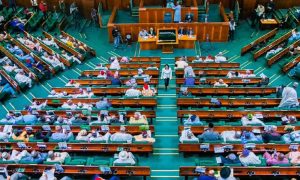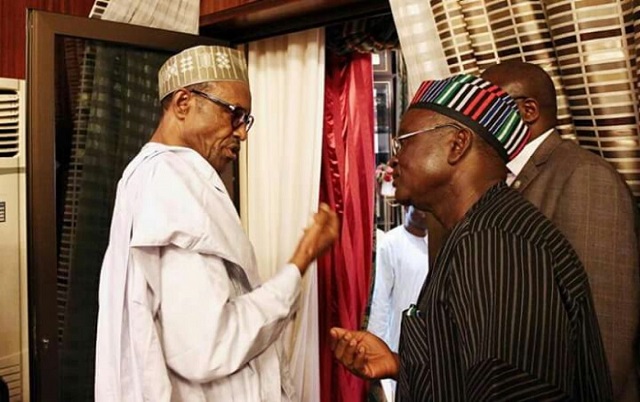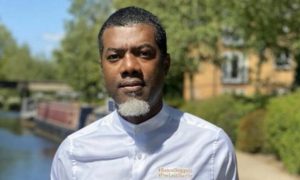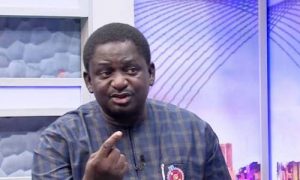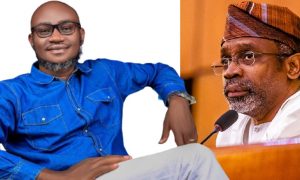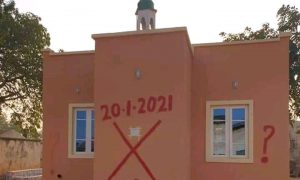Nigeria News
Electoral bill: Buhari rejects bill, gives reason
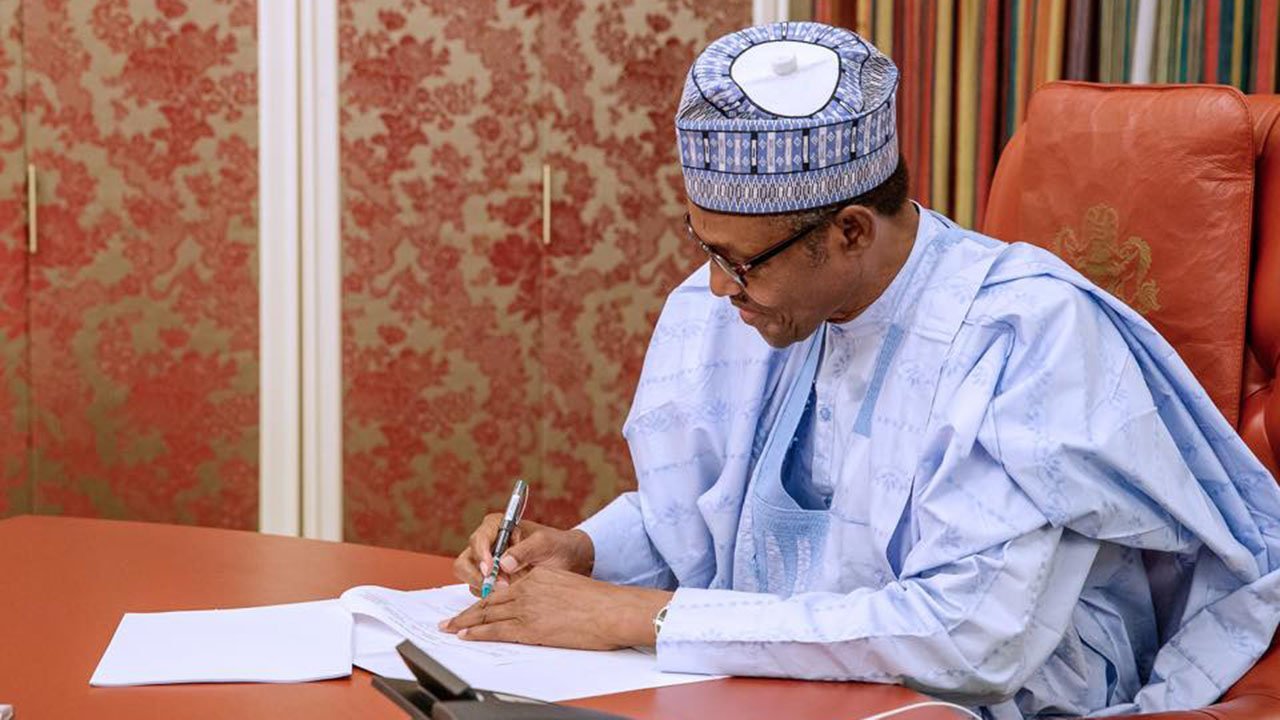
President Muhammadu Buhari has declined assent to the 2021 Electoral Act Amendment bill, stating that signing it into law would cause trouble among the political parties in the country.
Vanguard gathered that the letter of rejection of the bill which is before the President of the Senate, Senator Ahmad Lawan that will be read on Tuesday at plenary as letter from Mr. President indicates that President Buhari refused to sign the bill, citing the Direct primaries as approved by the National Assembly, the National Assembly for picking candidates by political parties in the amended Electoral Act as dangerous to the political atmosphere.
According to a source, the President refused assent to it against the backdrop that the parties have their various constitutions that indicate that primaries should be conducted either directly or Indirectly and until such provisions are amended, asking parties to do that through direct means would mean forcing the parties to conduct primaries through direct means which according to President Buhari, amounts to abuse of the constitution of the party.
The Source said, ” With all these reasons given by the President, he has returned the bill to the National Assembly, asking the lawmakers to look at the clause that has to do with direct primaries by political parties, work on it and return the document for assent.
There are strong indications that the Senate will today be turbulent as the Senators will take a decision on the growing uncertainty in the political atmosphere as the 30 days’ deadline for President Muhammadu Buhari to sign the Electoral Act Bill that elapsed on Sunday.
Speaking with Vanguard yesterday on condition of anonymity, a Senator said, ” we have the number to override Buhari’s Veto, but with Senator Lawan as the President of the Senate, it will be difficult because he operates the Senate as an extension of the Presidency “
On his part, Senator Matthew Urhoghide, Peoples Democratic Party, PDP, Edo South who spoke with Vanguard urged the National Assembly to extricate itself from what he described as public odium and disrespect by going ahead to override President Buhari who is All Progressives Congress, APC, just as he said that history stares NASS in the face if indeed it is not a rubber stamp.
Senator Urhoghide said, “We must be reminded that members of the National Assembly are truly the representatives of the people because every Federal Constituency and Senatorial District seat is allocated to a segment of the Nigerian people who are their constituents.
“The members of the National Assembly consulted with a cross-section of their constituents to reach an informed position on any matter of national interest and development.
“The issue of Direct Primaries in our electoral process has been well canvassed, elucidated, and argued by both Chambers of the NASS, and inputs were taken at public hearing from across the spectrum of all critical stakeholders.
” Both Chambers passed the Bill with some little variations in some sections which consequently necessitated the setting up of a Conference committee of five members each from both Chambers. At the end of all the deliberations, Direct primary was agreed upon.
“The convincing force being that it will ensure total inclusiveness in ensuring internal democracy within the parties in the election of Party officials or party administrators at congresses and convention and party flag bearers at party nominations.
“The bane has always been that the greater majority of party members do not the privilege or right to choose who becomes the party candidate in an election. Hitherto, it was the exclusive preserve of the power holders or deep pockets who would always want to control the party.
“The time has come when only popular candidates within the party should be thrown up for general elections. General elections in this way will become easier and less cumbersome for parties to win since they have truly popular candidates.
“As we speak today, the whole world has become a global village. Nigeria should endeavour to revolutionise its electoral system as to avert bickering and unnecessary disputation that come with nominations or party primaries.
“In Chile, Gabriel Boric, a thirty five years old former student activist has won the run off in the Presidential election because he was truly popular and supported by the people.
“Less than two hours into counting of the ballots his much older opponent congratulated him and urged all his compatriots to support his incoming government.
“Nigeria must take a queue by allowing genuine inclusiveness particularly our young people who are in excess of sixty percent of our population. All the devious designs to exclude them will not help us.
“I urge my colleagues in the National Assembly to do the needful by vetoing the bill and make it law. This is not the first time it is happening in Nigeria.
“The NDDC Bill of 2001 was vetoed by NASS under Obasanjo who was a PDP president. The NASS should extricate itself from public odium and disrespect by going ahead to override President Buhari who is APC. History stares NASS in the face if indeed it is not a rubber stamp.”
The National Assembly had on Tuesday, 9th November, 2021 passed the much anticipated Electoral Act Amendment Bill 2021 after both the Senate and the House of Representatives deliberated extensively on the report of the Conference Committee on the bill.
The Senate had on that day, passed the harmonized version of the Electoral Act (Amendment) Bill, 2021.
The passage followed the consideration of the report of the Conference Committee of the Senate and House of Representatives on the bill.
In line with customary legislative procedures, the two chambers had in September set up Conference Committees to reconcile disparity in the versions of the bill as passed by the Senate and the House of Representatives.
Consequently, the National Assembly had on November 19, 2021 transmitted the bill to President Buhari for assent in line with Section 58(4) of the 1999 Constitution that ” Where a bill is presented to the President for assent, he shall within 30 days thereof signify that he assents or that he withholds assent.”
With the expiration of the date for assent, the next line of action as the bill has not been returned to the National Assembly is for the Senators and members of the House of Representatives to as a matter of urgency override Buhari’s Veto, just as if the President writes to both chambers of the National Assembly to express his reservations about the Electoral Act 2010 Amendment Bill, it means he has withheld his assent and cast doubt on the rationality of the lawmakers to review or amend the contentious provisions of the Act.
What this connotes in Legislative processes is that the president has vetoed the bill and at this stage, the National Assembly is now in a position to override the veto by two-thirds of its members at separate sittings.
This will not be the first time that the National Assembly will carry out such an action if the President fails to sign the bill against the backdrop that the fourth Republic was the first time when on June 7, 2000, the National Assembly, under the chairmanship of Anyim Pius Anyim, overrode President Olusegun Obasanjo’s veto of the Niger Delta Development Commission (NDDC) Establishment Bill.
The action was taken In 2000 when the National Assembly proposed that 15 percent of Federal Government’s monthly statutory allocations be contributed to the funding of the Commission, but the then President, Obasanjo wanted it reduced to 10 percent, even as he also wanted the 3 percent annual budget of all oil and gas companies operating in the Niger Delta region proposed by the National Assembly as the companies’ funding contribution to the Commission be reduced to 1.5 percent.
Whereas, Obasanjo wanted member states of the NDDC to contribute 10 percent of their derivation funds to funding the Commission, the National Assembly dropped that proposal
Incidentally, the timeline for the President to assent to Electoral Act Bill came to an end, the Sunday, President Buhari left Nigeria for Turkey for official matters and where he also marked his 79th birthday celebration.
It also coincided with the weekend, the President of the Senate and Chairman of the National Assembly, Ahmad Lawan and his Deputy, Senator Ovie Omo-Agege, APC, Delta Central led a delegation of Senators to attend the turbaning of Yusuf Buhari as the Talban of Daura by the Emir of Daura, Alhaji Umar Farouk.
Also recall that the clause seeking to make direct primary mandatory for political parties scaled through by most of the lawmakers who lost out during the last local government and state congresses of the APC and they came up with the clause to get back at their governors by making them lose relevance on who should vote or be voted for during party primary elections.
But as the lawmakers succeeded in doing that, the governors on their part, have not rested on their oars as they have made their representations to Buhari who seems to have been swayed by their argument.


